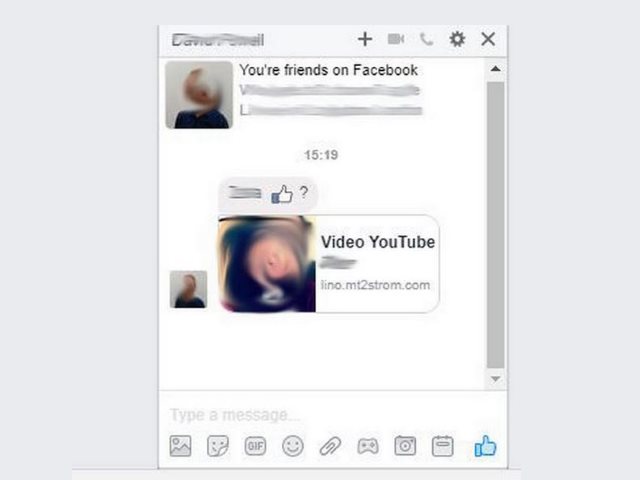 This article has been created in order to explain to you what is the Facebook Private Video Virus scam and how you can remove the scamming message and the potentially unwanted program that is causing it on your PC.
This article has been created in order to explain to you what is the Facebook Private Video Virus scam and how you can remove the scamming message and the potentially unwanted program that is causing it on your PC.
Facebook Private Video Virus is one of the most dangerous threats to computer users worldwide as it can lead to many dangerous outcomes. The analyzed campaigns showcase that it can lead to virus infections, identity theft and other related crimes. Our article gives an in-depth explanation of how it propagates and how victims can attempt to remove active infections.

Threat Summary
| Name | Facebook Private Video Virus |
| Type | Facebook video message virus script |
| Short Description | The Facebook Private Video Virus is a recent example of the scam tactic that coerces the users into falling victim to a dangerous virus infection. |
| Symptoms | Victims will receive Facebook messages from familiar or unknown users. |
| Distribution Method | Facebook Messenger Links, browser hijackers and others. |
| Detection Tool |
See If Your System Has Been Affected by malware
Download
Malware Removal Tool
|
User Experience | Join Our Forum to Discuss Facebook Private Video Virus. |

Facebook Private Video Virus — Overview
The Facebook Private Video Virus is a serious cause of concern as this threat can take many forms. The most common symptom is a received message from a known or unknown sender with a video message. The user may be presented with various titles or descriptions, both short and long, that entices them into interacting with the displayed contents. In almost all cases this will trigger a payload delivery script that can lead to a virus infection. In other cases clicking on the video may cause a redirect to a hacker-controlled site which can lead to any of the following threats:
- Ads Placement — Clicking on the videos may lead to a redirect to a site displaying various intrusive ads. When the user interactions are recorded the malicious operators will receive income.
- Infections — Interaction with the video can lead to infections with all kinds of viruses and malware threats.
- Extensions Installation — In some cases the script will lead to the installation of a browser extension.
Its important to note that malicious users and targeted messages are not the only source of infections. Facebook Private Video Virus instances can be caused by malware browser extensions. They have typical signs that can alert some users. They are made compatible with the most popular web browsers and make use of fake user reviews, developer credentials and an elaborate description. They are advertised as offering performance optimizations and adding new features which might be useful to the users. However upon installation they will lead to the execution of a built-in pattern of tasks. Most of the hijackers will redirect the users to a hacker-controlled site by manipulating the default settings — home page, new tabs page and search engine.
As this is one of the most frequent causes of infection users are advised to check their browsers for any installed browser extensions. Removal of all suspicious or unknown browser extensions may remove the source of infections.
Last year a large-scale attack was launched against users worldwide. It posted a video along with an URL and a message with a video in an attempt to coerce the users into thinking that they have been tagged by a friend. However as a result of this a virus will be deployed to the target machines. Some of the reports indicate that a large part of the victims were logged out from Facebook and wer eunable to log back in.
This means that it is likely that a data collection module. was executed with the aim of hijacking Facebook login credentials and other sensitive data. Extracted contents can be grouped into two main categories:
- Private User Data — The module can hijack information such as the victim’s name, address, phone number, location and interests. If any stored credentials are found then they will be harvested automatically.
- Computer Metrics — In order to increase the number of infected computers and to facilitate future infections. Example content is a list of the installed hardware components, user settings and certain operating system values.
All of these examples show that there are different strains of the Facebook Private Video Virus that are launched by different hackers. Over time the threat can take many forms and this is why computer users that notice any symptoms should attempt to remove them as soon as possible.

Remove Facebook Private Video Virus Scam from Windows and Your Browser
If you want to remove the Facebook Private Video Virus scam from your computer, we strongly suggest that you follow the removal instructions posted underneath this article. They have been created with the main idea In mind to help you delete this virus either manually or automatically. Be advised that according to experts the best way to try and remove the software that is causing the Facebook Private Video Virus scamming pop-ups is to use an advanced anti-malware software. Such program is created with the idea in mind to fully scan your computer and try to eliminate any traces of unwanted programs while protecting your computer against future infections as well.
- Windows
- Mac OS X
- Google Chrome
- Mozilla Firefox
- Microsoft Edge
- Safari
- Internet Explorer
- Stop Push Pop-ups
How to Remove Facebook Private Video Virus from Windows.
Step 1: Scan for Facebook Private Video Virus with SpyHunter Anti-Malware Tool
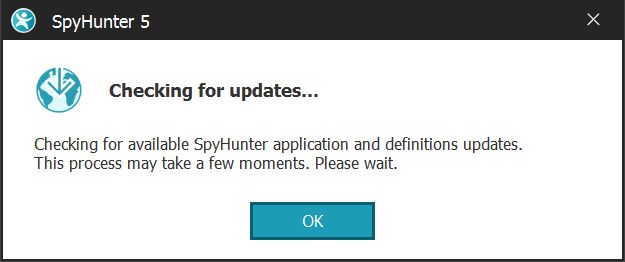
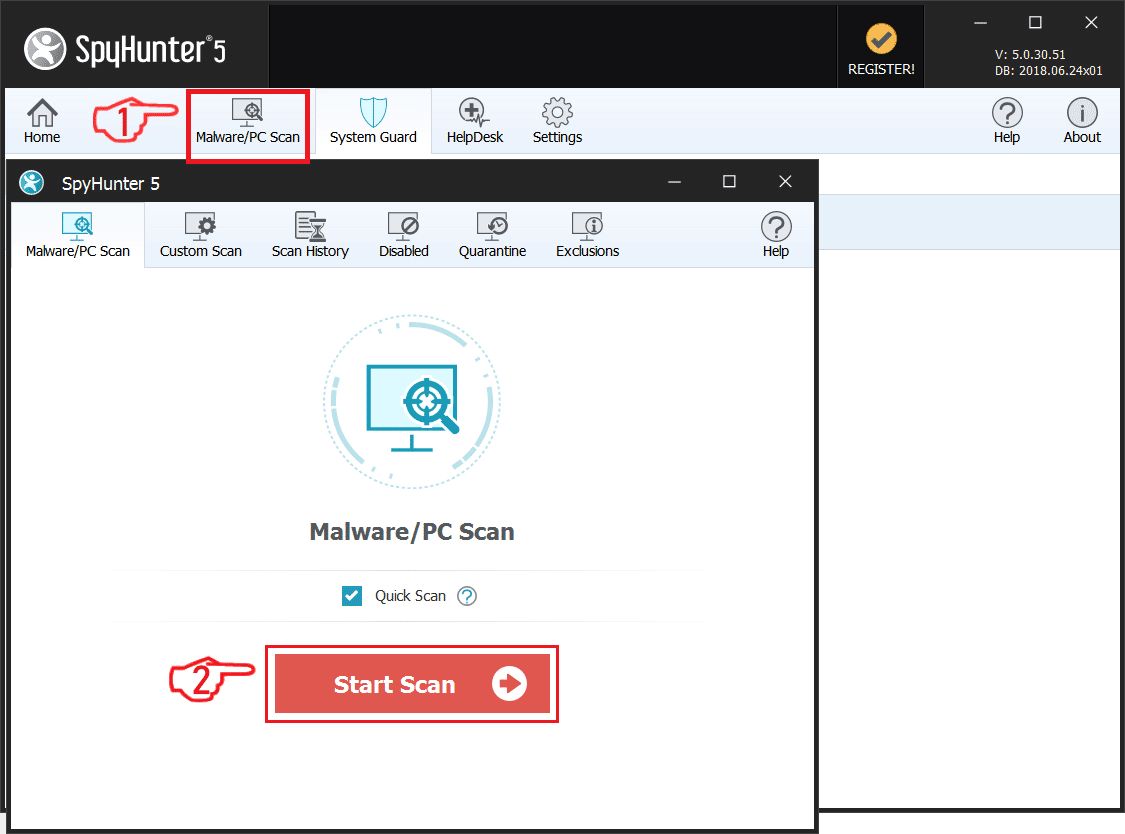
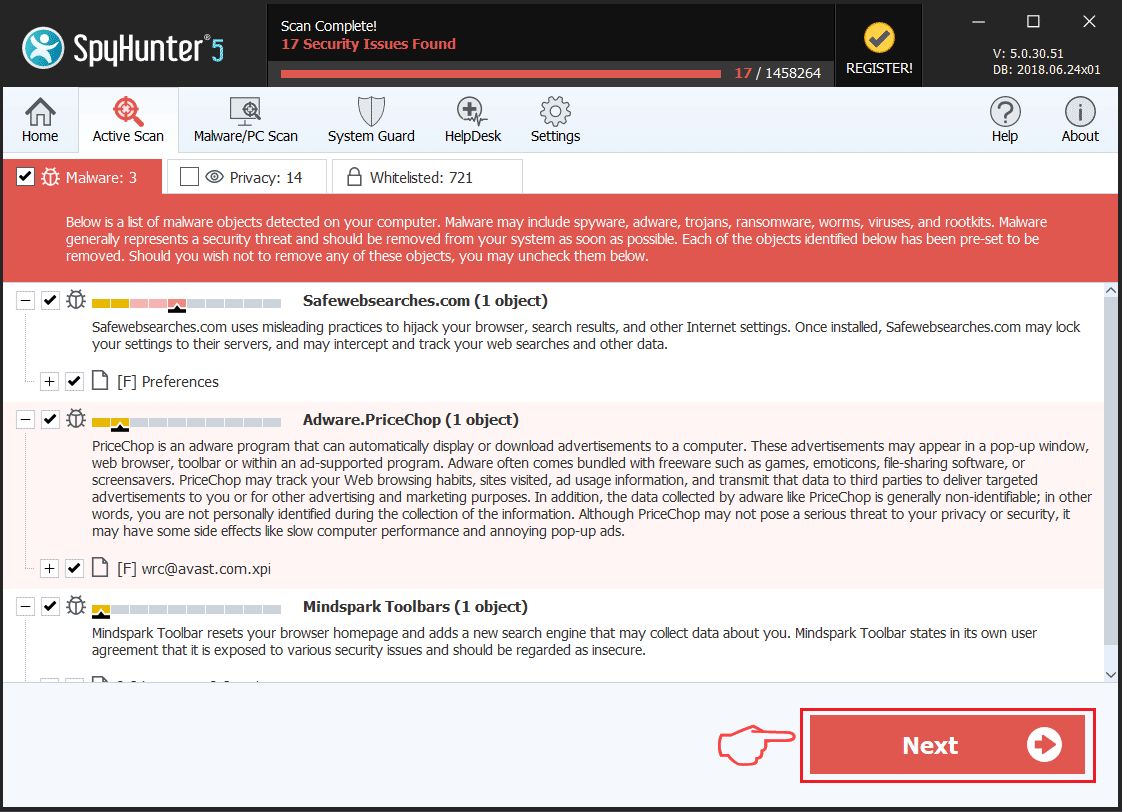
Step 2: Boot Your PC In Safe Mode

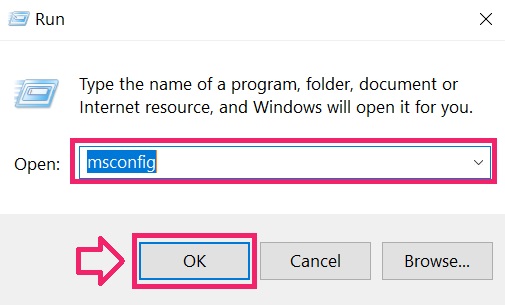
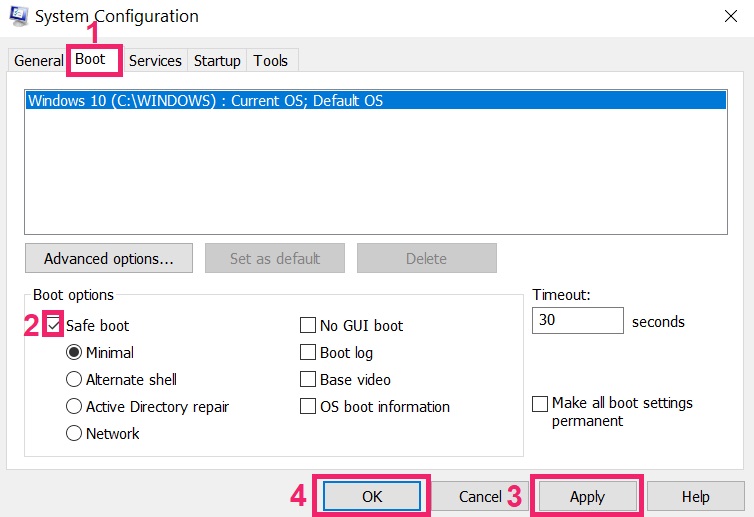
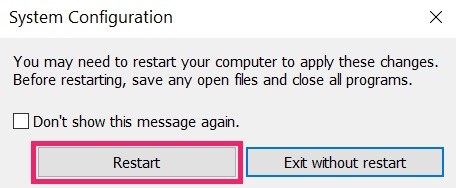
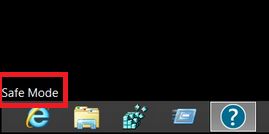
Step 3: Uninstall Facebook Private Video Virus and related software from Windows
Uninstall Steps for Windows 11
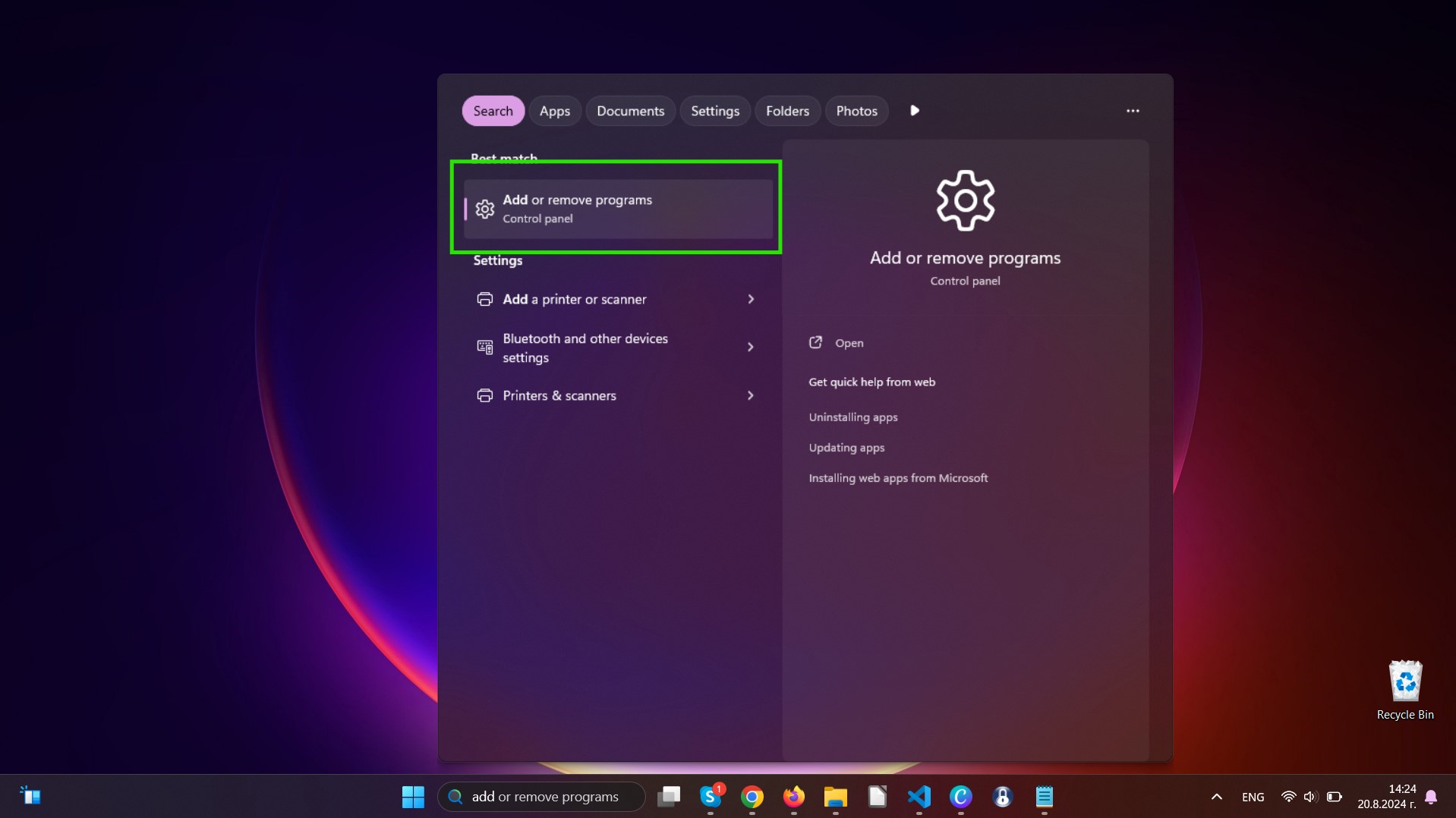
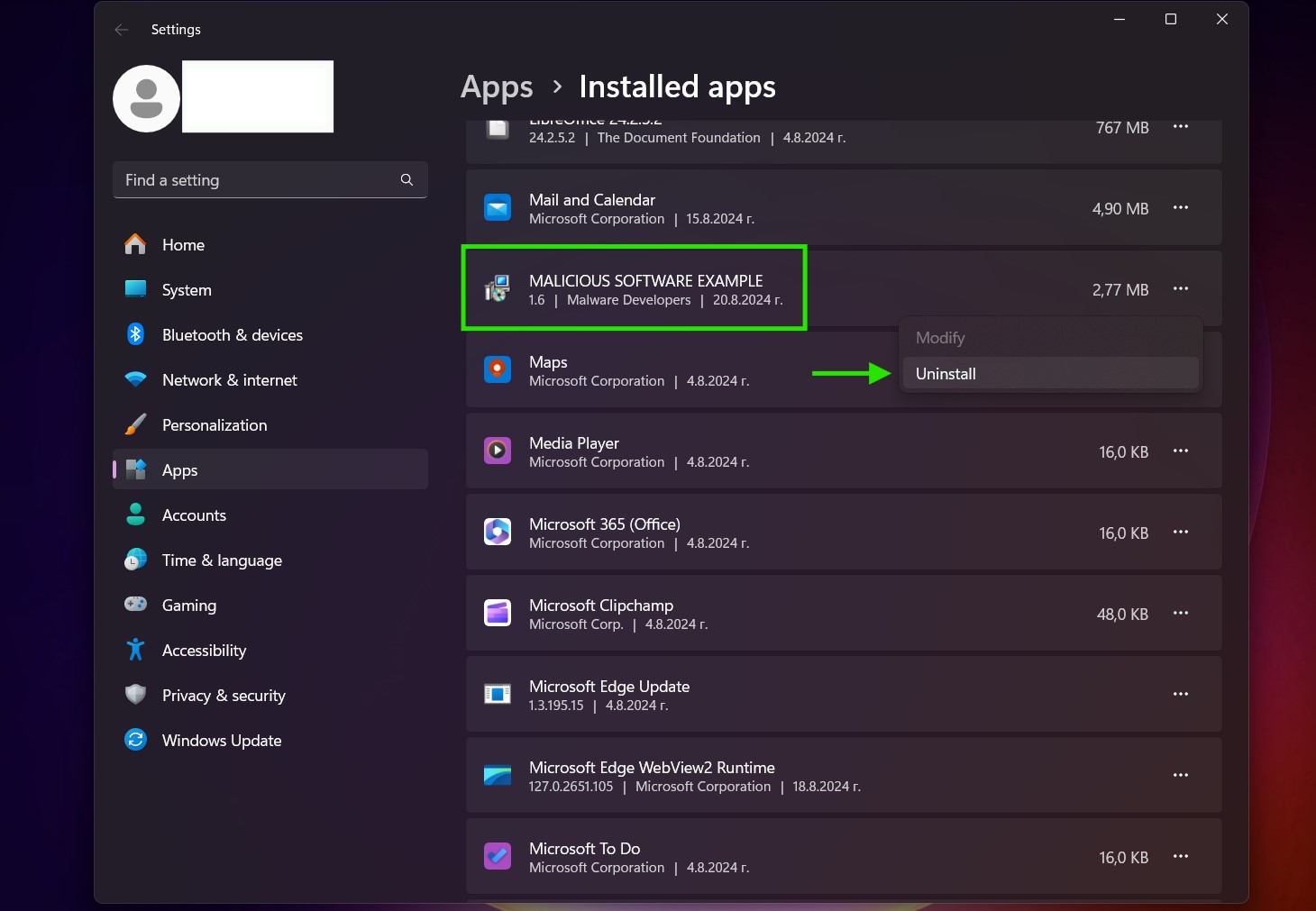
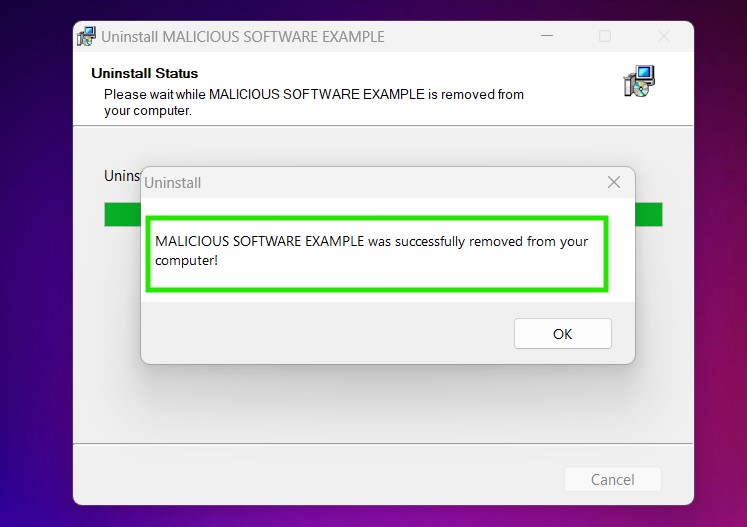
Uninstall Steps for Windows 10 and Older Versions
Here is a method in few easy steps that should be able to uninstall most programs. No matter if you are using Windows 10, 8, 7, Vista or XP, those steps will get the job done. Dragging the program or its folder to the recycle bin can be a very bad decision. If you do that, bits and pieces of the program are left behind, and that can lead to unstable work of your PC, errors with the file type associations and other unpleasant activities. The proper way to get a program off your computer is to Uninstall it. To do that:

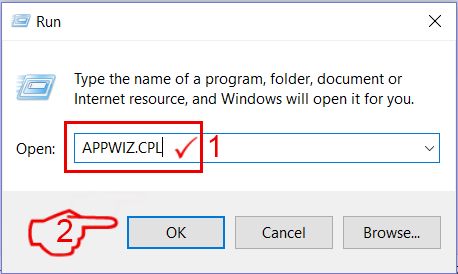
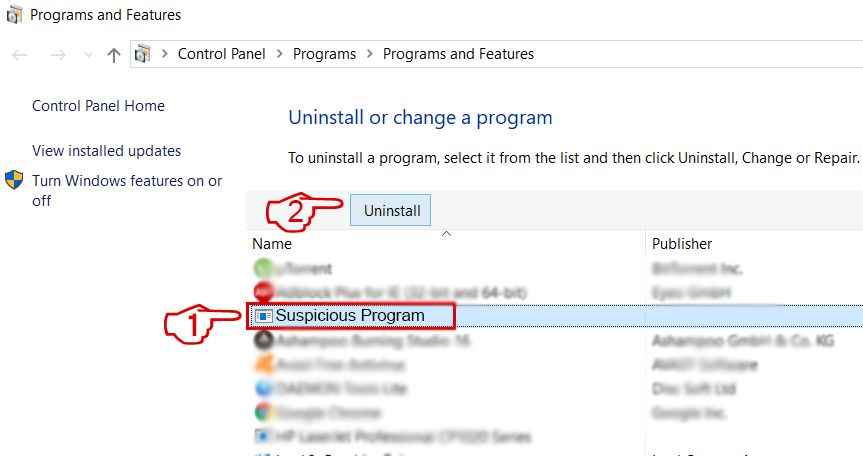 Follow the instructions above and you will successfully uninstall most programs.
Follow the instructions above and you will successfully uninstall most programs.
Step 4: Clean Any registries, Created by Facebook Private Video Virus on Your PC.
The usually targeted registries of Windows machines are the following:
- HKEY_LOCAL_MACHINE\Software\Microsoft\Windows\CurrentVersion\Run
- HKEY_CURRENT_USER\Software\Microsoft\Windows\CurrentVersion\Run
- HKEY_LOCAL_MACHINE\Software\Microsoft\Windows\CurrentVersion\RunOnce
- HKEY_CURRENT_USER\Software\Microsoft\Windows\CurrentVersion\RunOnce
You can access them by opening the Windows registry editor and deleting any values, created by Facebook Private Video Virus there. This can happen by following the steps underneath:
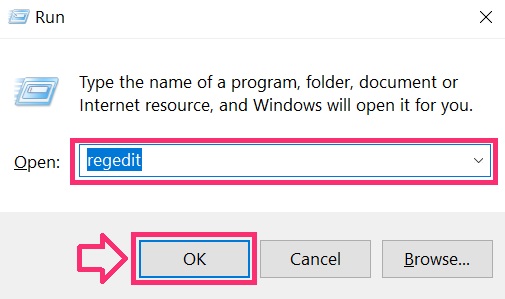

 Tip: To find a virus-created value, you can right-click on it and click "Modify" to see which file it is set to run. If this is the virus file location, remove the value.
Tip: To find a virus-created value, you can right-click on it and click "Modify" to see which file it is set to run. If this is the virus file location, remove the value.
Video Removal Guide for Facebook Private Video Virus (Windows).
Get rid of Facebook Private Video Virus from Mac OS X.
Step 1: Uninstall Facebook Private Video Virus and remove related files and objects
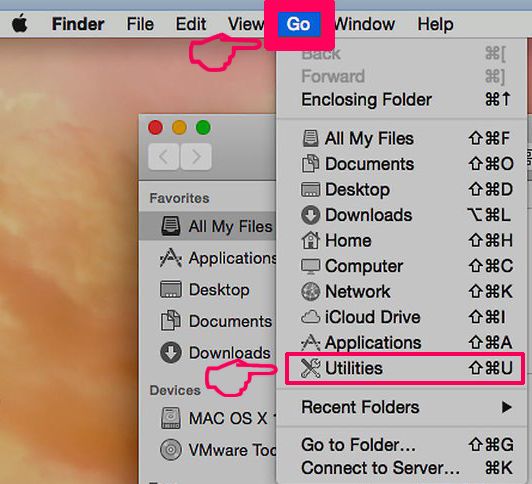
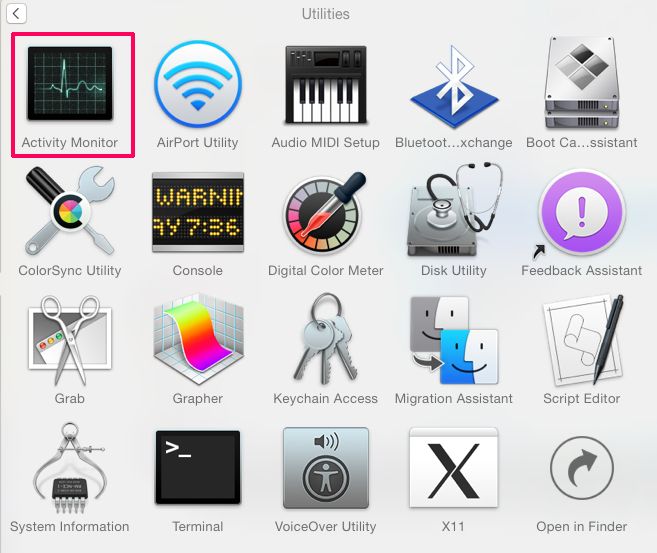
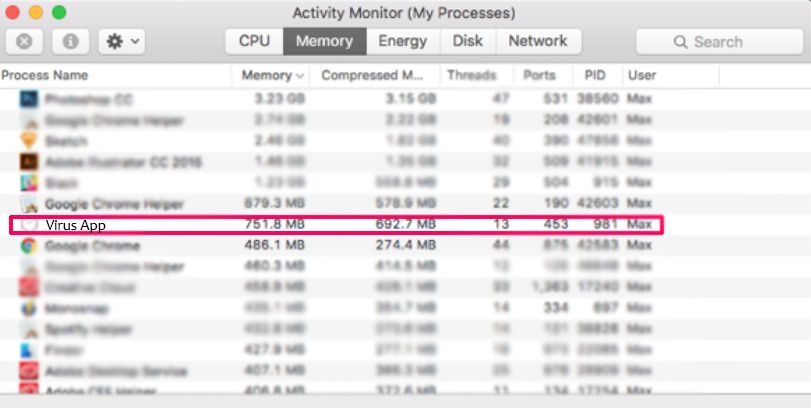
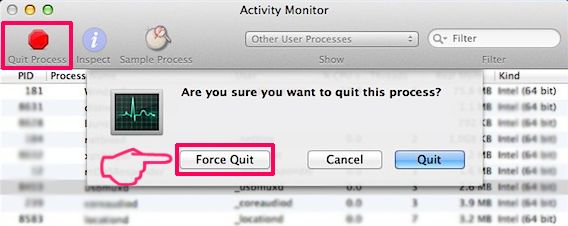
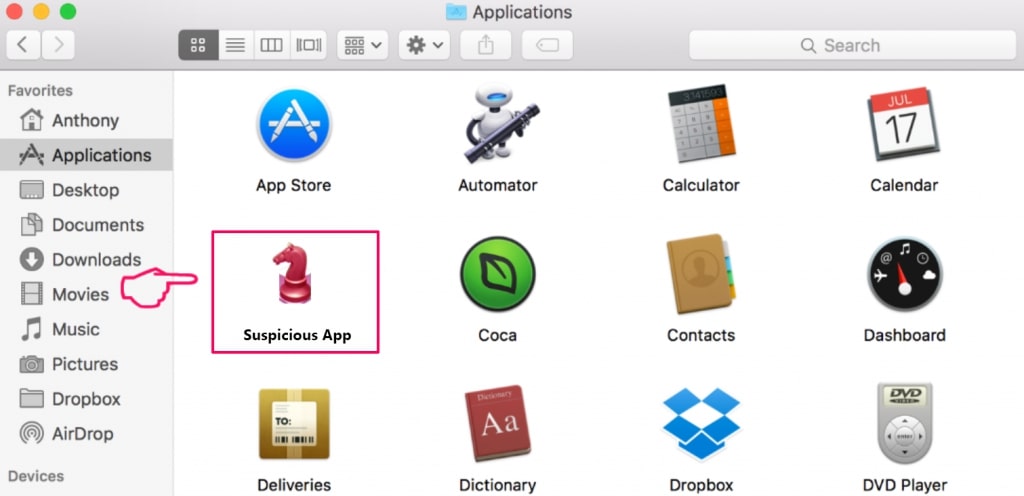
Your Mac will then show you a list of items that start automatically when you log in. Look for any suspicious apps identical or similar to Facebook Private Video Virus. Check the app you want to stop from running automatically and then select on the Minus (“-“) icon to hide it.
- Go to Finder.
- In the search bar type the name of the app that you want to remove.
- Above the search bar change the two drop down menus to “System Files” and “Are Included” so that you can see all of the files associated with the application you want to remove. Bear in mind that some of the files may not be related to the app so be very careful which files you delete.
- If all of the files are related, hold the ⌘+A buttons to select them and then drive them to “Trash”.
In case you cannot remove Facebook Private Video Virus via Step 1 above:
In case you cannot find the virus files and objects in your Applications or other places we have shown above, you can manually look for them in the Libraries of your Mac. But before doing this, please read the disclaimer below:
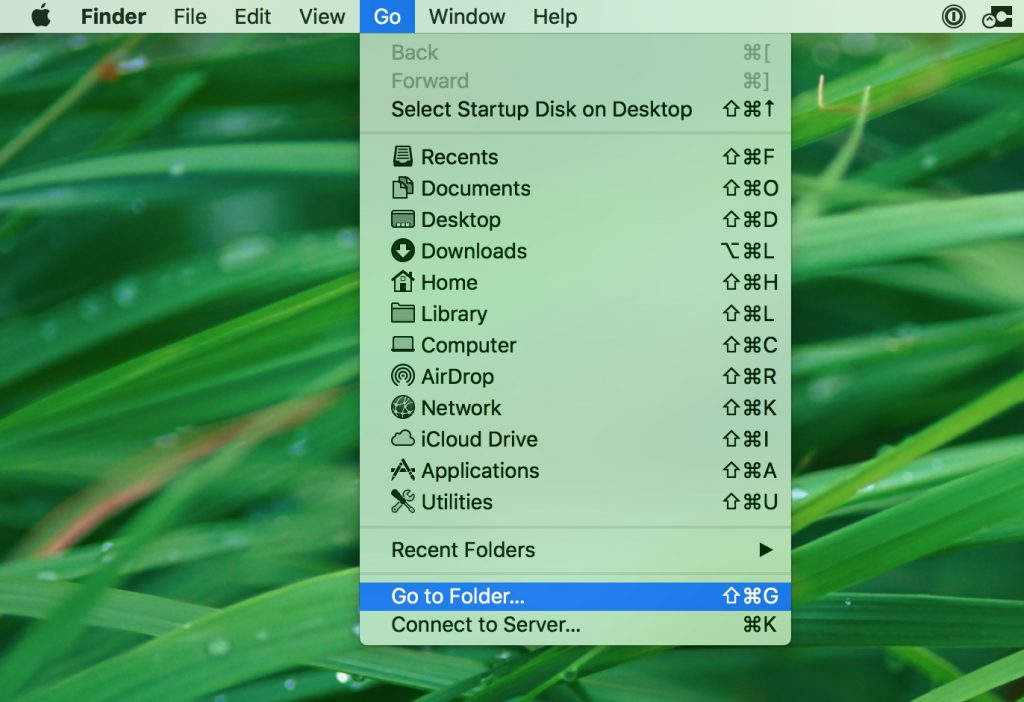
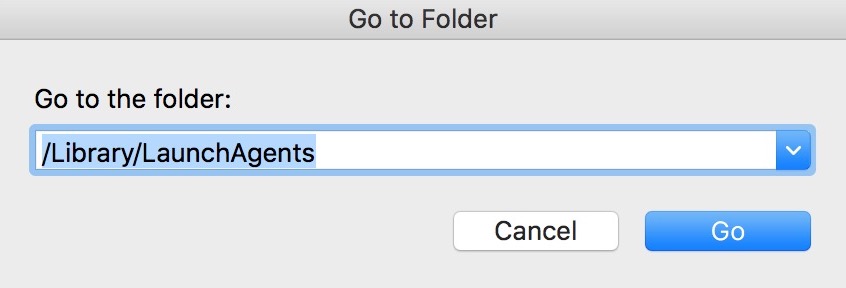
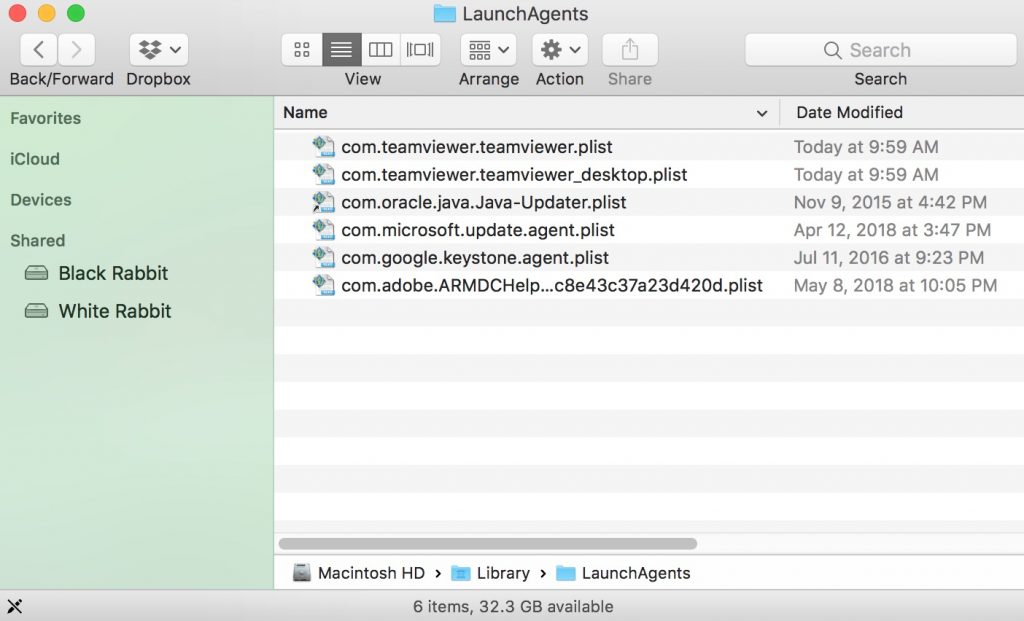
You can repeat the same procedure with the following other Library directories:
→ ~/Library/LaunchAgents
/Library/LaunchDaemons
Tip: ~ is there on purpose, because it leads to more LaunchAgents.
Step 2: Scan for and remove Facebook Private Video Virus files from your Mac
When you are facing problems on your Mac as a result of unwanted scripts and programs such as Facebook Private Video Virus, the recommended way of eliminating the threat is by using an anti-malware program. SpyHunter for Mac offers advanced security features along with other modules that will improve your Mac’s security and protect it in the future.
Video Removal Guide for Facebook Private Video Virus (Mac)
Remove Facebook Private Video Virus from Google Chrome.
Step 1: Start Google Chrome and open the drop menu
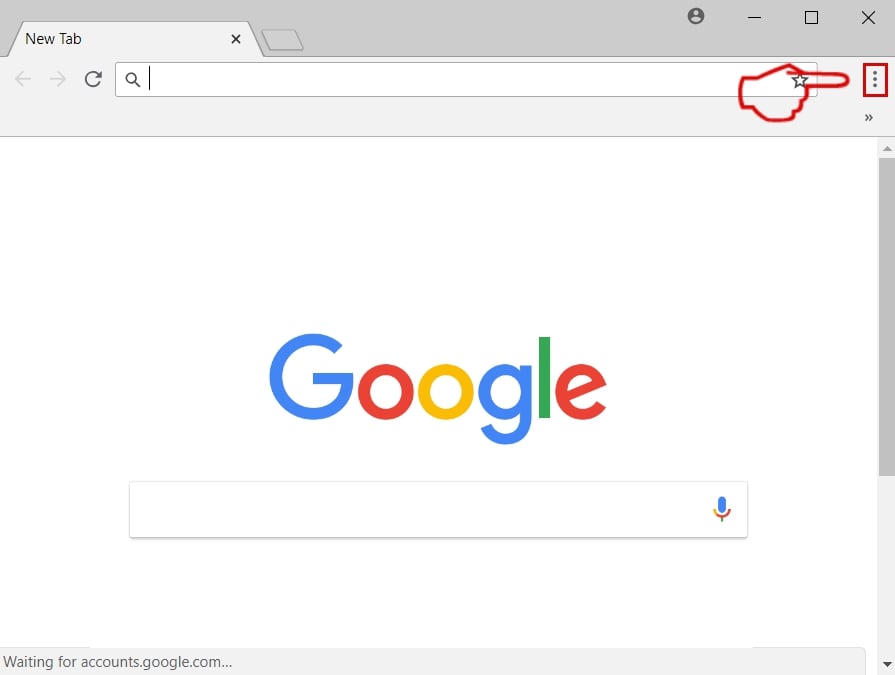
Step 2: Move the cursor over "Tools" and then from the extended menu choose "Extensions"
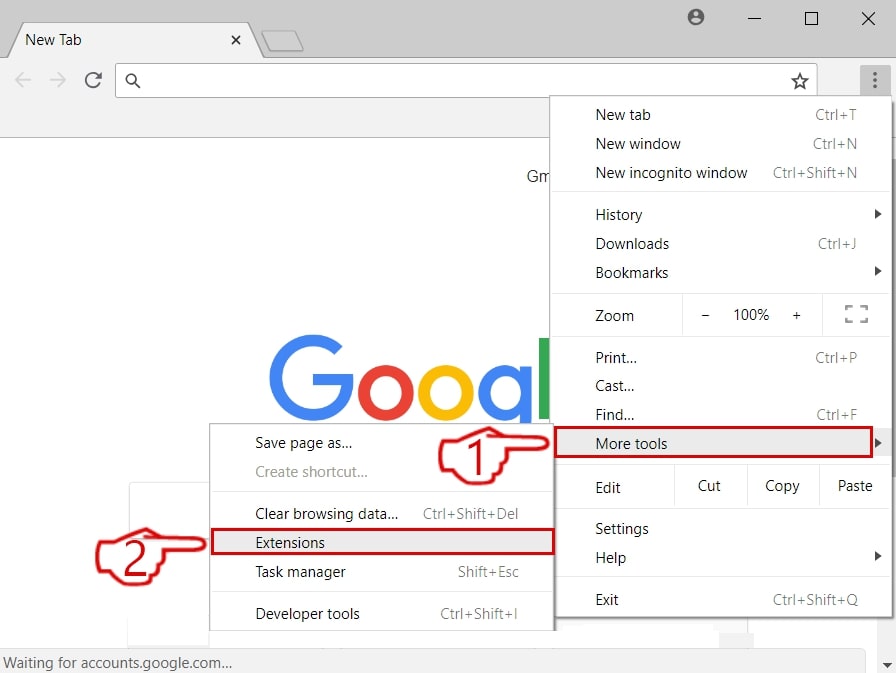
Step 3: From the opened "Extensions" menu locate the unwanted extension and click on its "Remove" button.
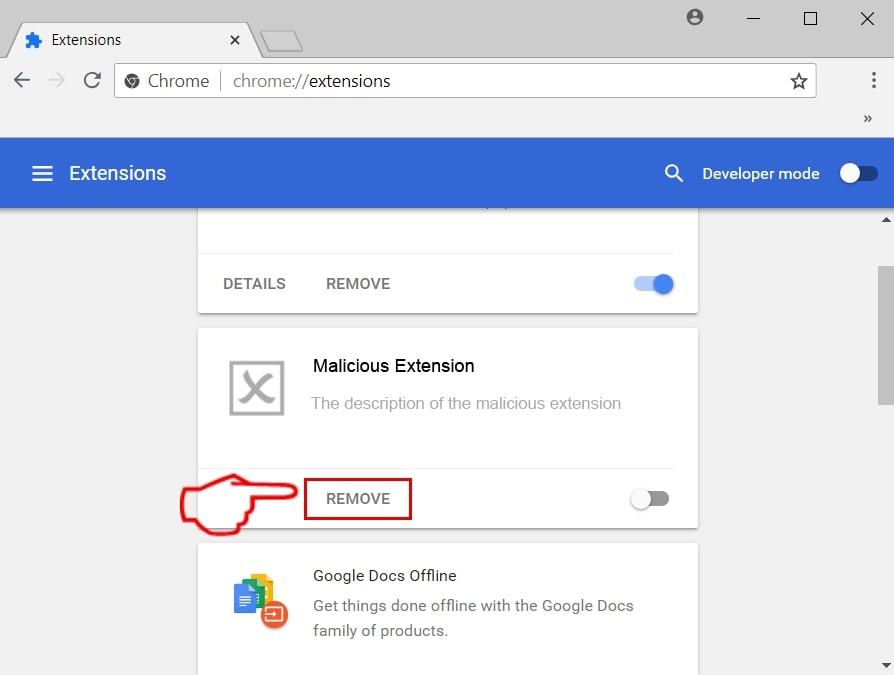
Step 4: After the extension is removed, restart Google Chrome by closing it from the red "X" button at the top right corner and start it again.
Erase Facebook Private Video Virus from Mozilla Firefox.
Step 1: Start Mozilla Firefox. Open the menu window:
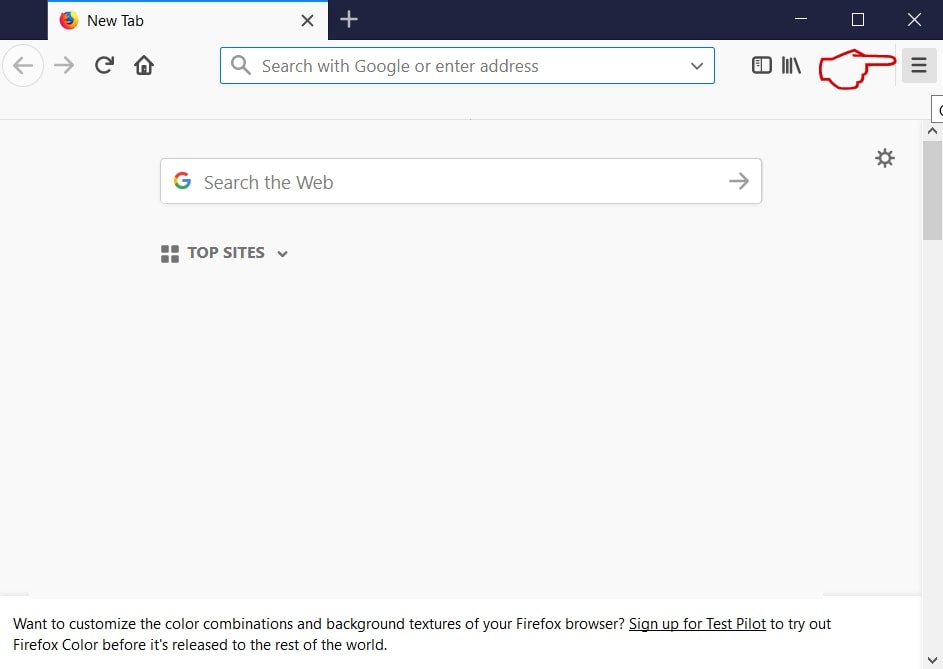
Step 2: Select the "Add-ons" icon from the menu.
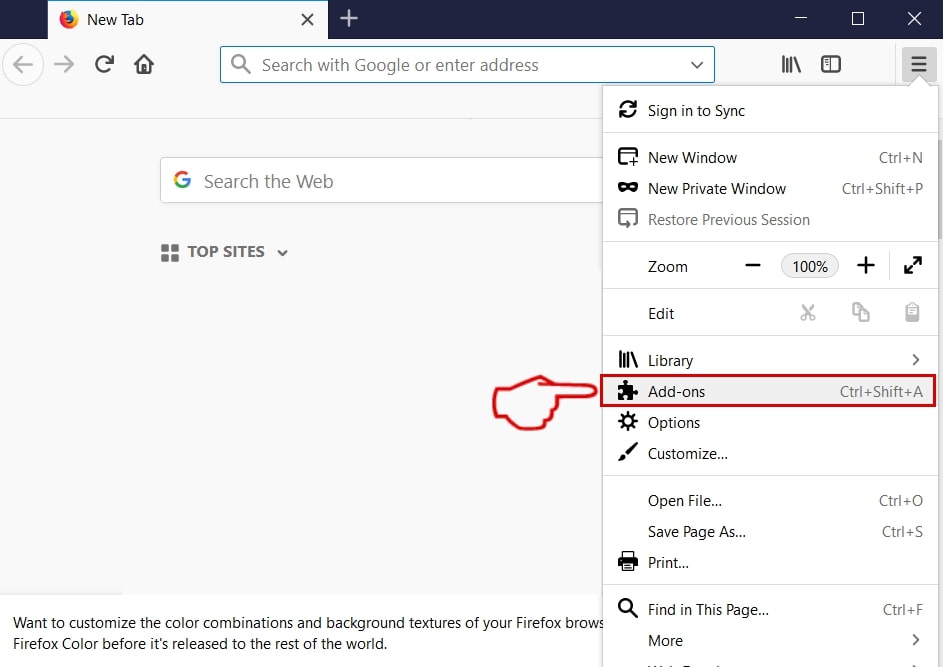
Step 3: Select the unwanted extension and click "Remove"

Step 4: After the extension is removed, restart Mozilla Firefox by closing it from the red "X" button at the top right corner and start it again.
Uninstall Facebook Private Video Virus from Microsoft Edge.
Step 1: Start Edge browser.
Step 2: Open the drop menu by clicking on the icon at the top right corner.
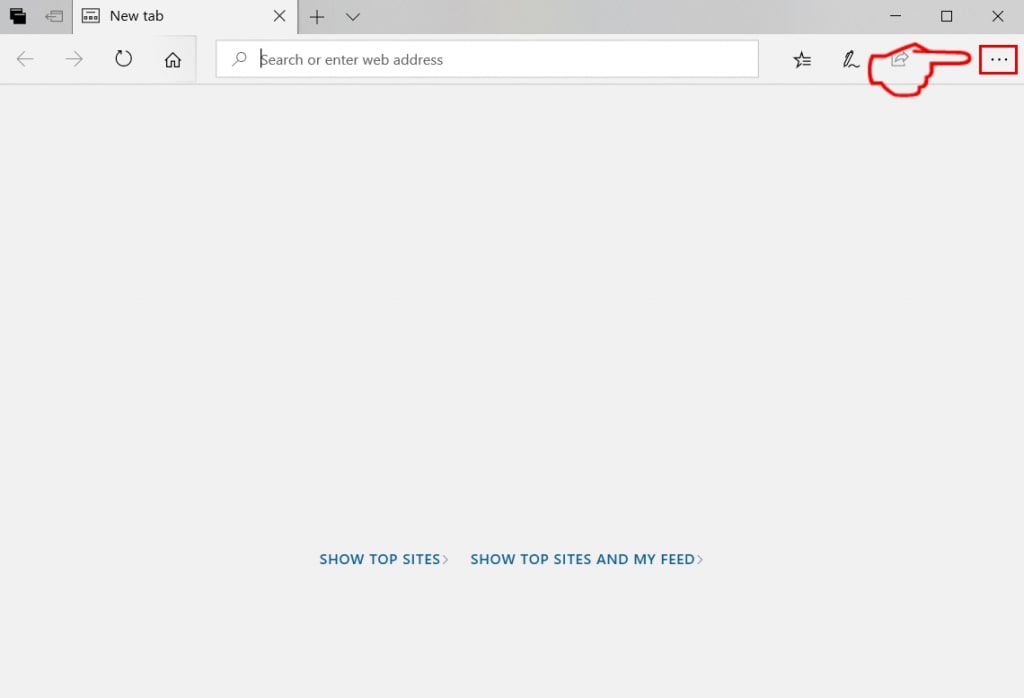
Step 3: From the drop menu select "Extensions".
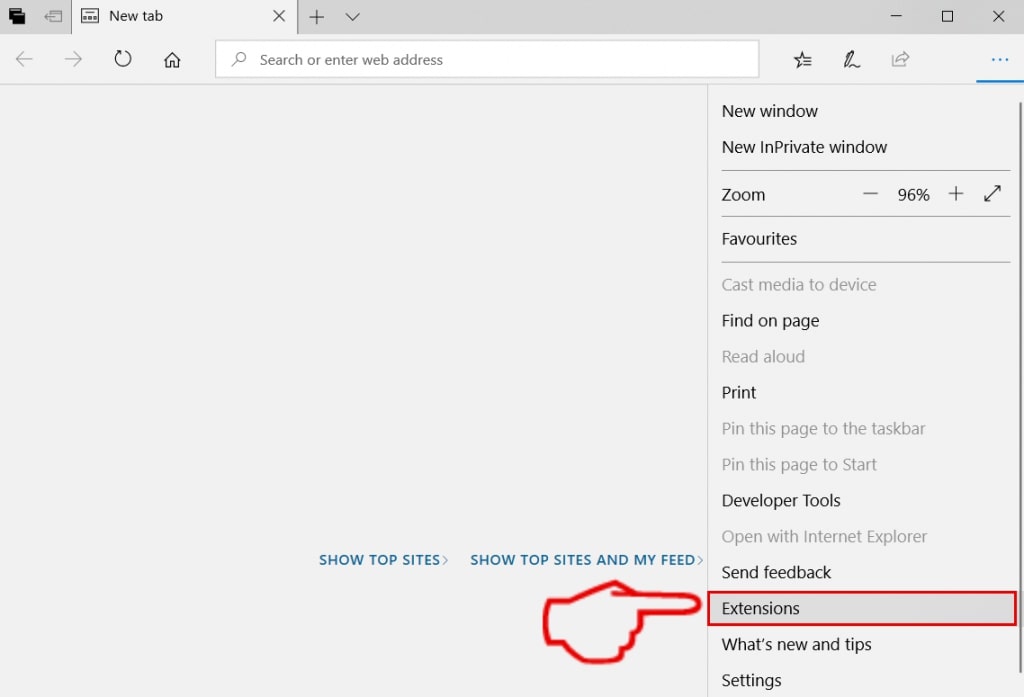
Step 4: Choose the suspected malicious extension you want to remove and then click on the gear icon.
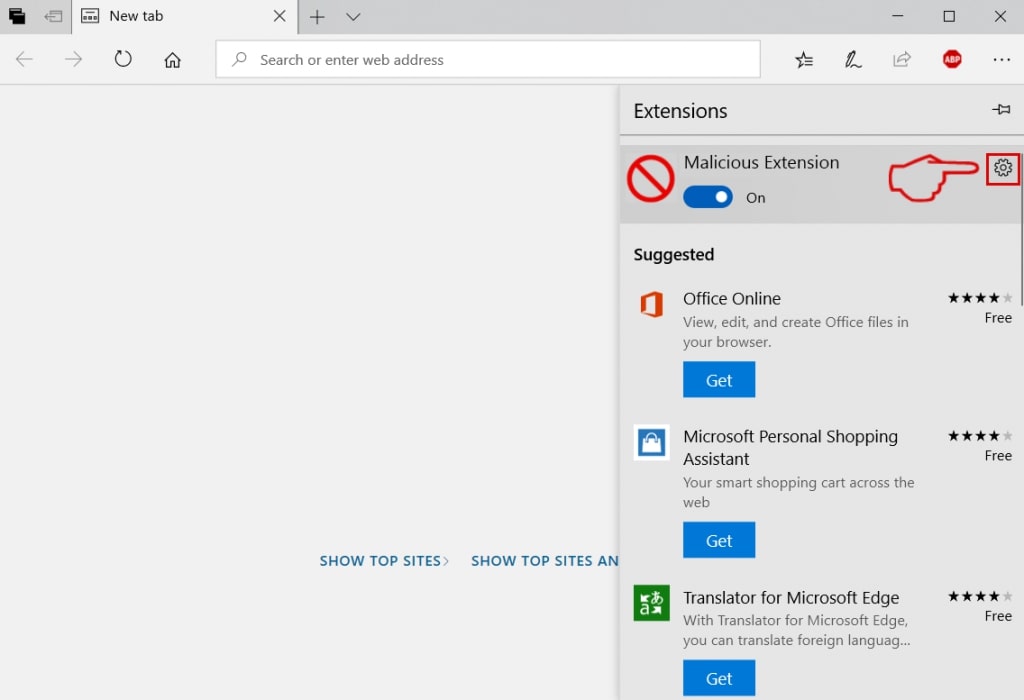
Step 5: Remove the malicious extension by scrolling down and then clicking on Uninstall.
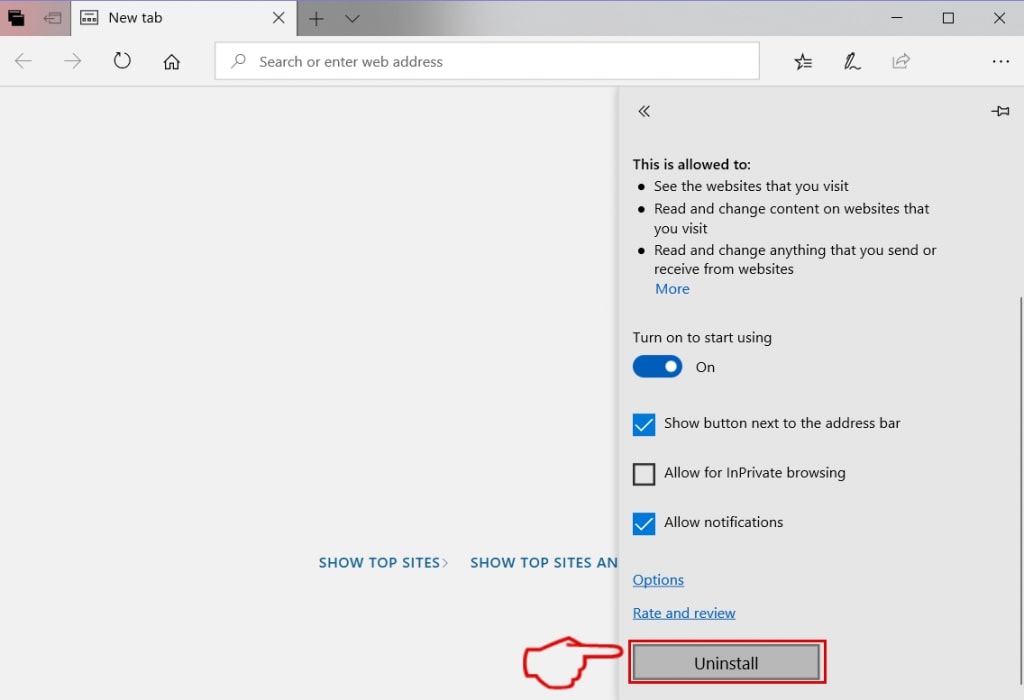
Remove Facebook Private Video Virus from Safari
Step 1: Start the Safari app.
Step 2: After hovering your mouse cursor to the top of the screen, click on the Safari text to open its drop down menu.
Step 3: From the menu, click on "Preferences".
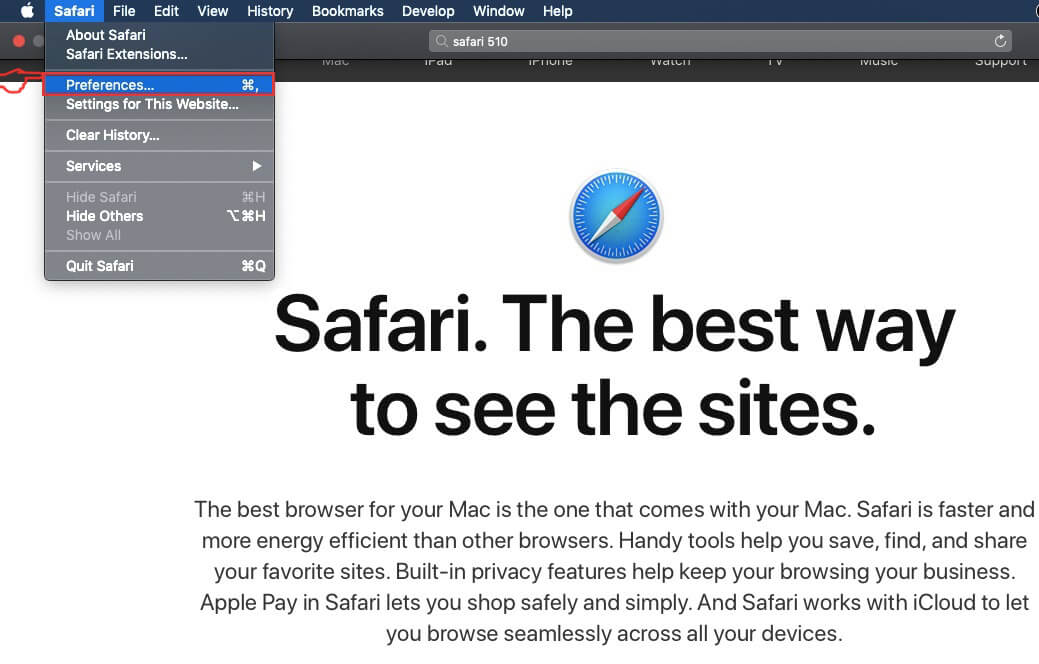
Step 4: After that, select the 'Extensions' Tab.

Step 5: Click once on the extension you want to remove.
Step 6: Click 'Uninstall'.
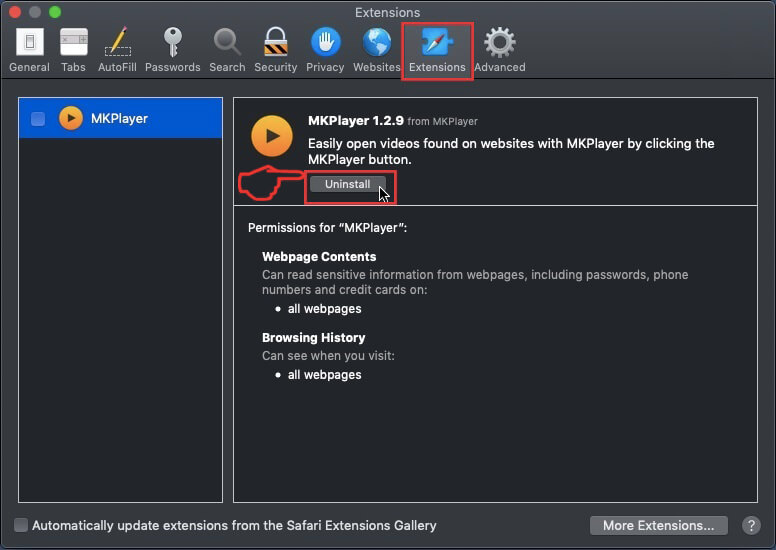
A pop-up window will appear asking for confirmation to uninstall the extension. Select 'Uninstall' again, and the Facebook Private Video Virus will be removed.
Eliminate Facebook Private Video Virus from Internet Explorer.
Step 1: Start Internet Explorer.
Step 2: Click on the gear icon labeled 'Tools' to open the drop menu and select 'Manage Add-ons'
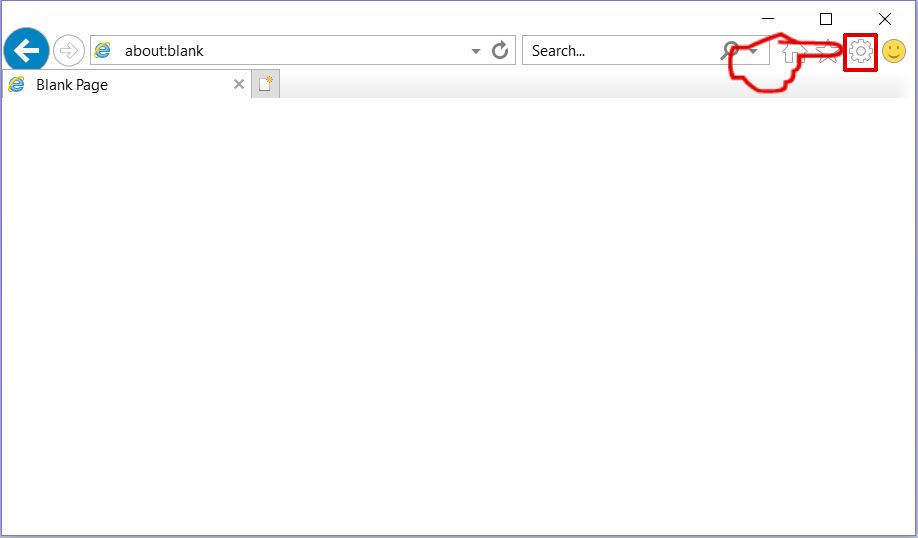
Step 3: In the 'Manage Add-ons' window.
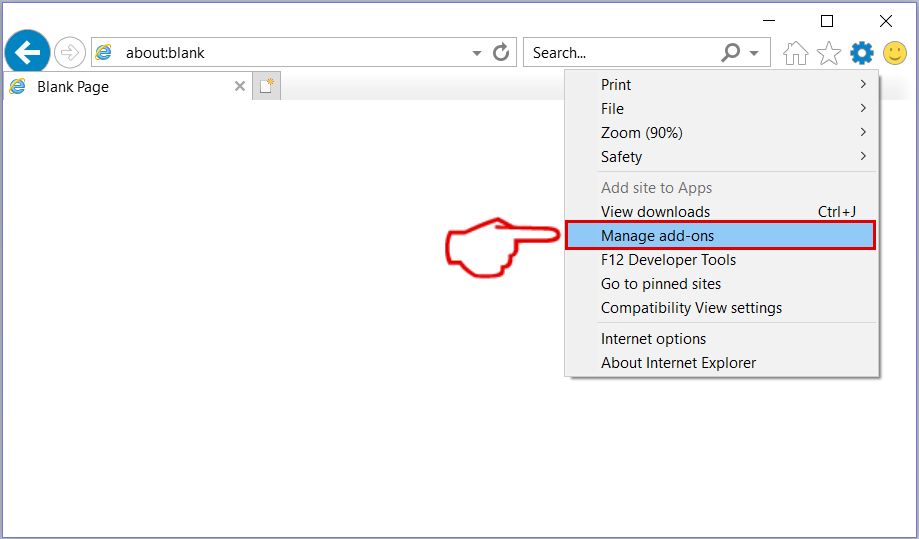
Step 4: Select the extension you want to remove and then click 'Disable'. A pop-up window will appear to inform you that you are about to disable the selected extension, and some more add-ons might be disabled as well. Leave all the boxes checked, and click 'Disable'.
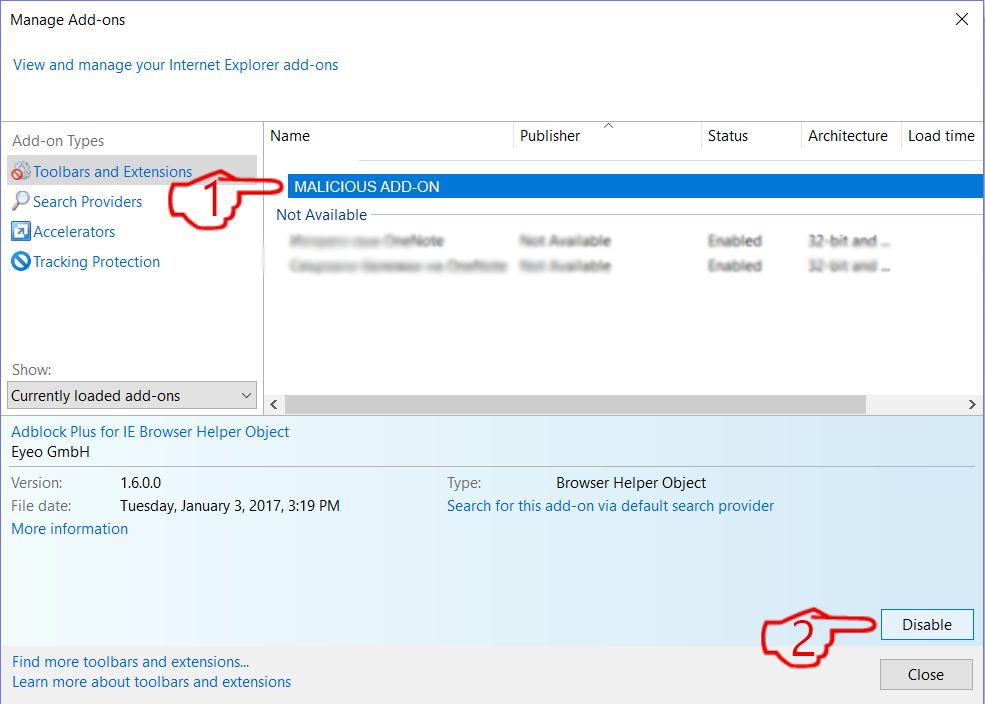
Step 5: After the unwanted extension has been removed, restart Internet Explorer by closing it from the red 'X' button located at the top right corner and start it again.
Remove Push Notifications from Your Browsers
Turn Off Push Notifications from Google Chrome
To disable any Push Notices from Google Chrome browser, please follow the steps below:
Step 1: Go to Settings in Chrome.
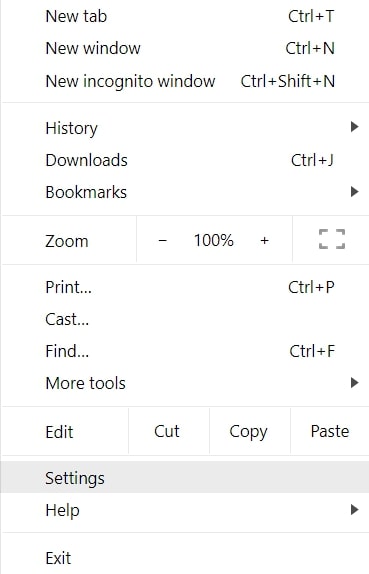
Step 2: In Settings, select “Advanced Settings”:
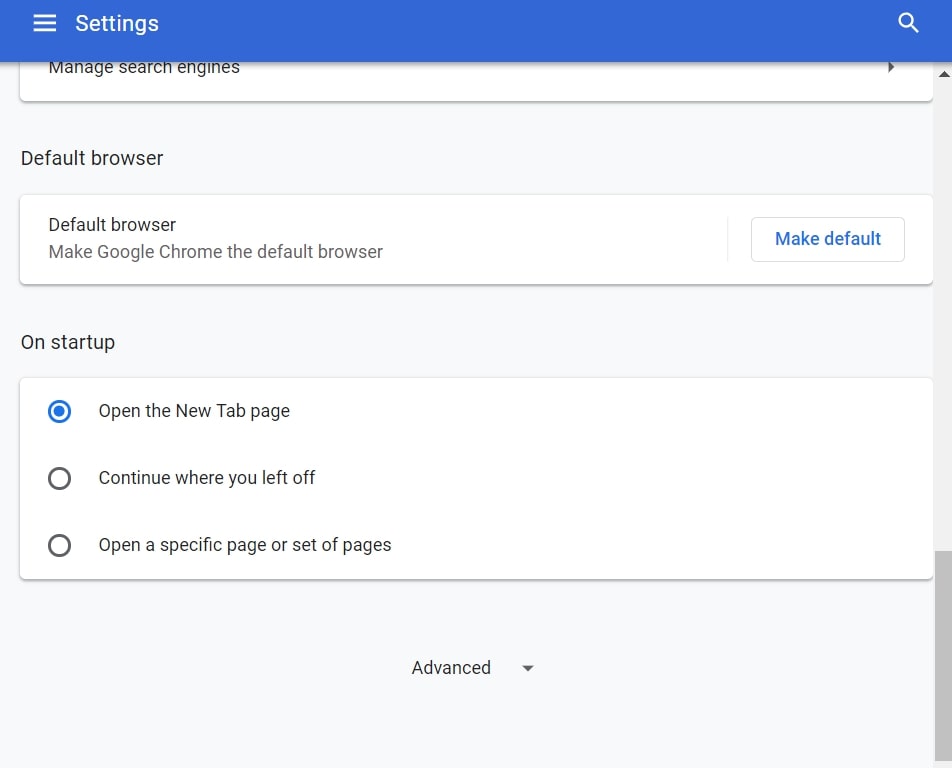
Step 3: Click “Content Settings”:
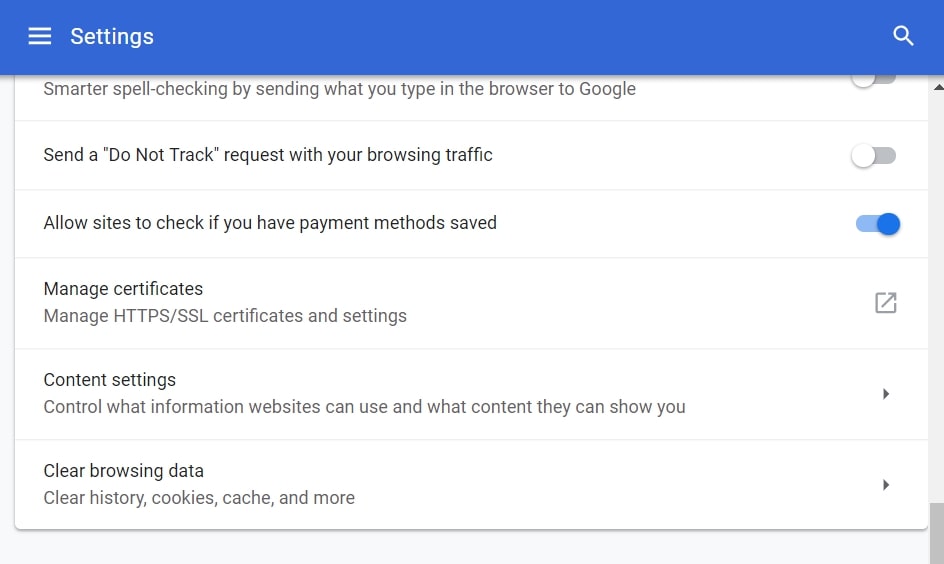
Step 4: Open “Notifications”:
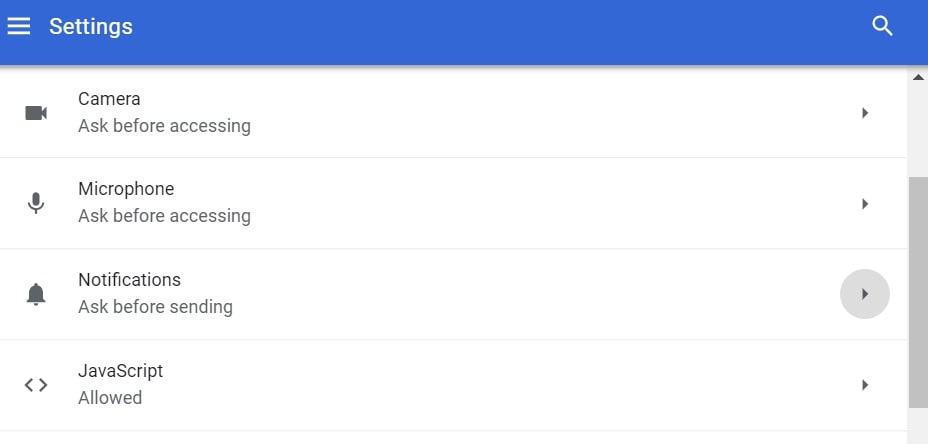
Step 5: Click the three dots and choose Block, Edit or Remove options:

Remove Push Notifications on Firefox
Step 1: Go to Firefox Options.
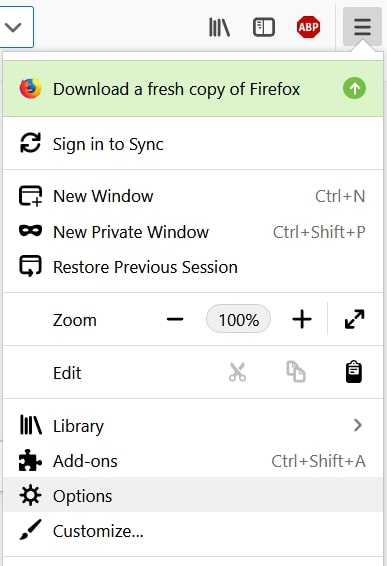
Step 2: Go to “Settings”, type “notifications” in the search bar and click "Settings":
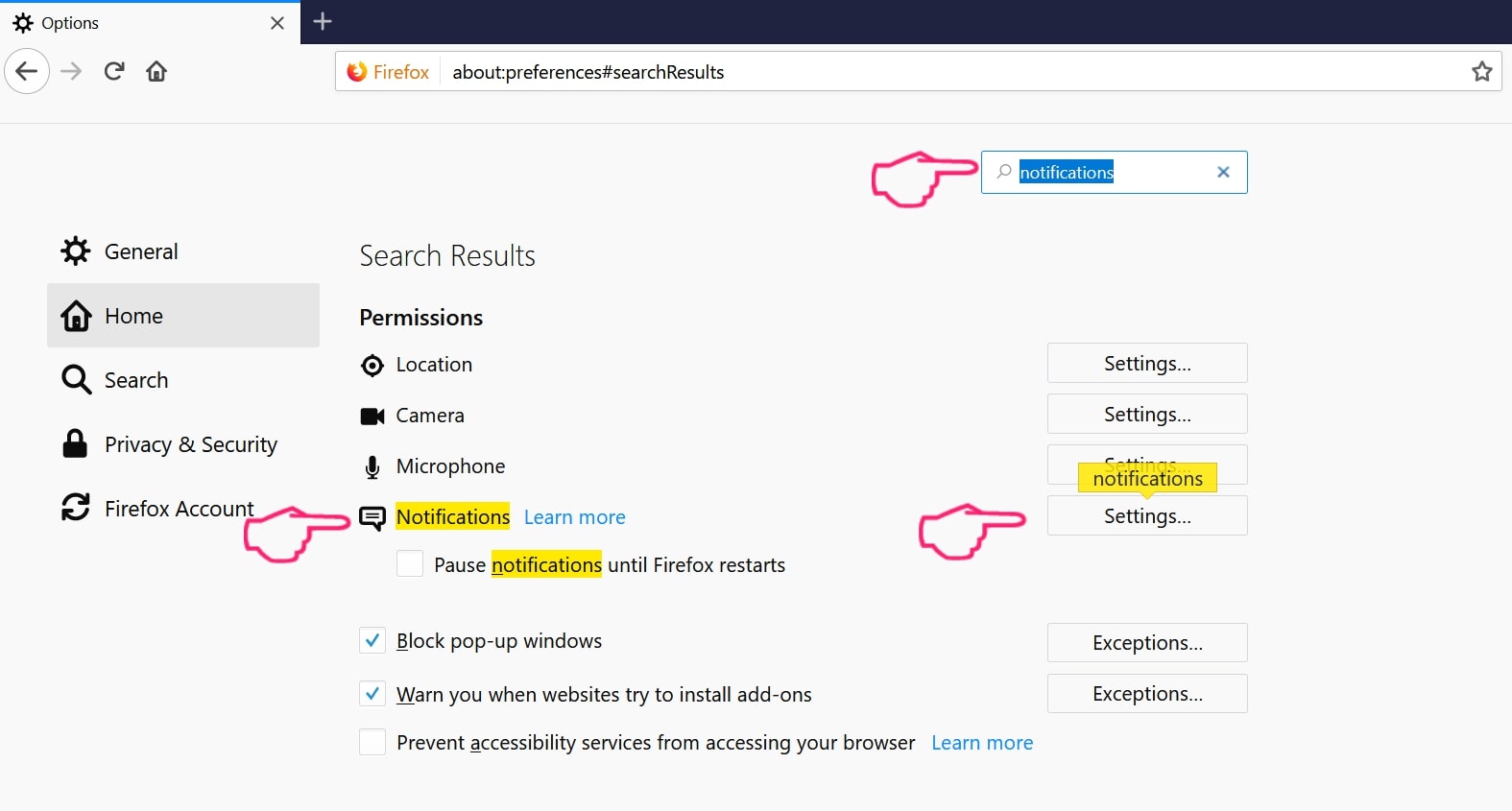
Step 3: Click “Remove” on any site you wish notifications gone and click “Save Changes”
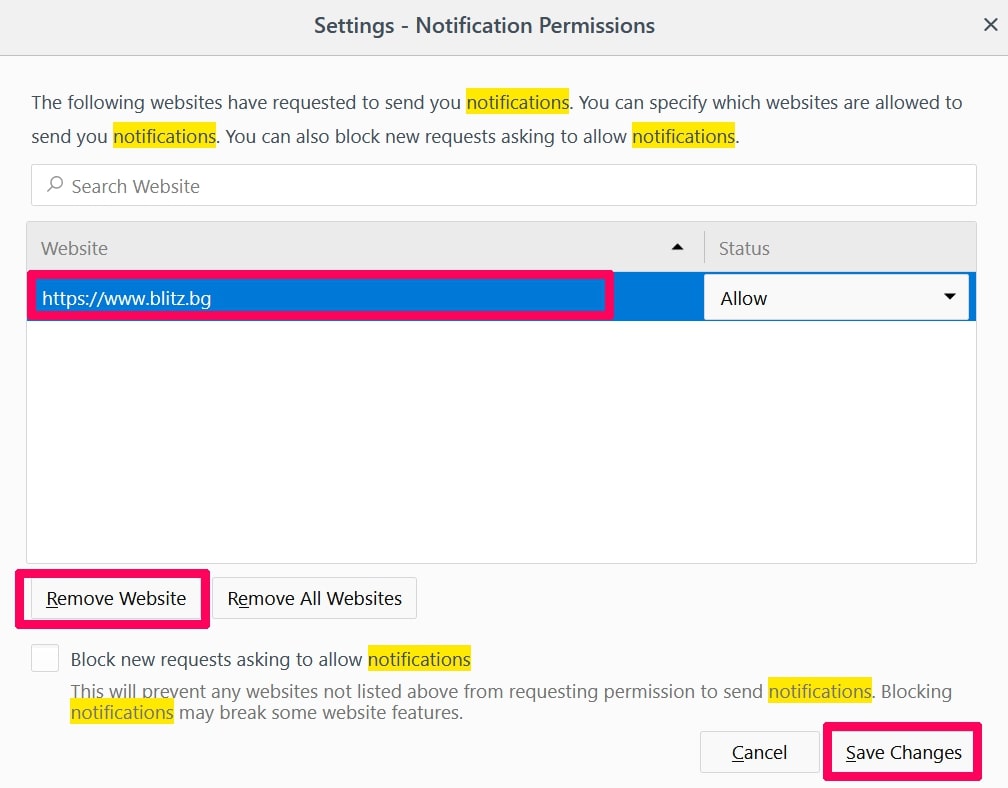
Stop Push Notifications on Opera
Step 1: In Opera, press ALT+P to go to Settings.

Step 2: In Setting search, type “Content” to go to Content Settings.
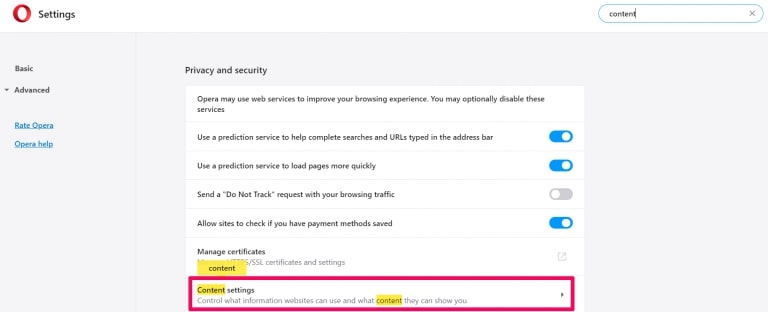
Step 3: Open Notifications:
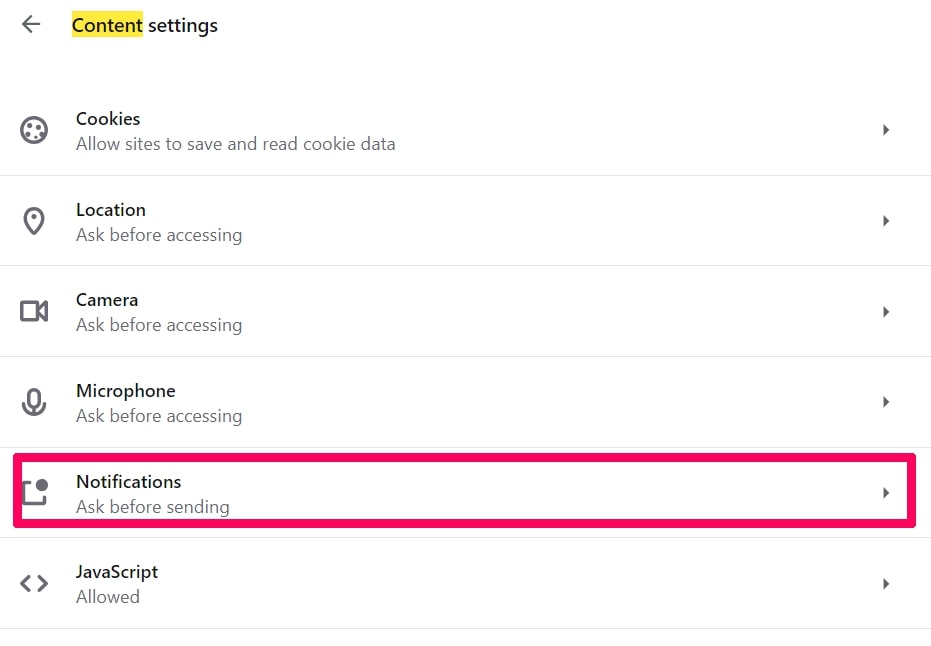
Step 4: Do the same as you did with Google Chrome (explained below):
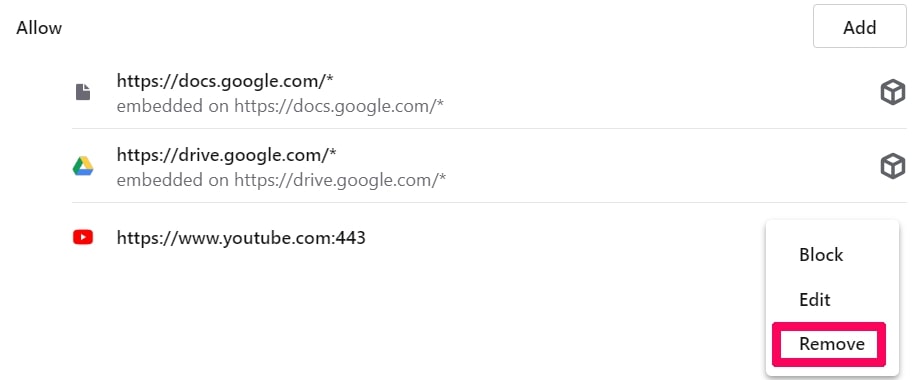
Eliminate Push Notifications on Safari
Step 1: Open Safari Preferences.
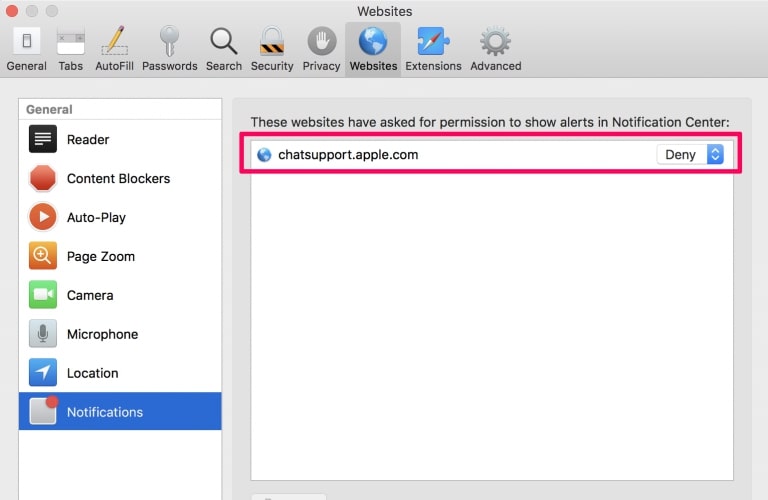
Step 2: Choose the domain from where you like push pop-ups gone and change to "Deny" from "Allow".
Facebook Private Video Virus-FAQ
What Is Facebook Private Video Virus?
The Facebook Private Video Virus threat is adware or browser redirect virus.
It may slow your computer down significantly and display advertisements. The main idea is for your information to likely get stolen or more ads to appear on your device.
The creators of such unwanted apps work with pay-per-click schemes to get your computer to visit risky or different types of websites that may generate them funds. This is why they do not even care what types of websites show up on the ads. This makes their unwanted software indirectly risky for your OS.
What Are the Symptoms of Facebook Private Video Virus?
There are several symptoms to look for when this particular threat and also unwanted apps in general are active:
Symptom #1: Your computer may become slow and have poor performance in general.
Symptom #2: You have toolbars, add-ons or extensions on your web browsers that you don't remember adding.
Symptom #3: You see all types of ads, like ad-supported search results, pop-ups and redirects to randomly appear.
Symptom #4: You see installed apps on your Mac running automatically and you do not remember installing them.
Symptom #5: You see suspicious processes running in your Task Manager.
If you see one or more of those symptoms, then security experts recommend that you check your computer for viruses.
What Types of Unwanted Programs Are There?
According to most malware researchers and cyber-security experts, the threats that can currently affect your device can be rogue antivirus software, adware, browser hijackers, clickers, fake optimizers and any forms of PUPs.
What to Do If I Have a "virus" like Facebook Private Video Virus?
With few simple actions. First and foremost, it is imperative that you follow these steps:
Step 1: Find a safe computer and connect it to another network, not the one that your Mac was infected in.
Step 2: Change all of your passwords, starting from your email passwords.
Step 3: Enable two-factor authentication for protection of your important accounts.
Step 4: Call your bank to change your credit card details (secret code, etc.) if you have saved your credit card for online shopping or have done online activities with your card.
Step 5: Make sure to call your ISP (Internet provider or carrier) and ask them to change your IP address.
Step 6: Change your Wi-Fi password.
Step 7: (Optional): Make sure to scan all of the devices connected to your network for viruses and repeat these steps for them if they are affected.
Step 8: Install anti-malware software with real-time protection on every device you have.
Step 9: Try not to download software from sites you know nothing about and stay away from low-reputation websites in general.
If you follow these recommendations, your network and all devices will become significantly more secure against any threats or information invasive software and be virus free and protected in the future too.
How Does Facebook Private Video Virus Work?
Once installed, Facebook Private Video Virus can collect data using trackers. This data is about your web browsing habits, such as the websites you visit and the search terms you use. It is then used to target you with ads or to sell your information to third parties.
Facebook Private Video Virus can also download other malicious software onto your computer, such as viruses and spyware, which can be used to steal your personal information and show risky ads, that may redirect to virus sites or scams.
Is Facebook Private Video Virus Malware?
The truth is that PUPs (adware, browser hijackers) are not viruses, but may be just as dangerous since they may show you and redirect you to malware websites and scam pages.
Many security experts classify potentially unwanted programs as malware. This is because of the unwanted effects that PUPs can cause, such as displaying intrusive ads and collecting user data without the user’s knowledge or consent.
About the Facebook Private Video Virus Research
The content we publish on SensorsTechForum.com, this Facebook Private Video Virus how-to removal guide included, is the outcome of extensive research, hard work and our team’s devotion to help you remove the specific, adware-related problem, and restore your browser and computer system.
How did we conduct the research on Facebook Private Video Virus?
Please note that our research is based on independent investigation. We are in contact with independent security researchers, thanks to which we receive daily updates on the latest malware, adware, and browser hijacker definitions.
Furthermore, the research behind the Facebook Private Video Virus threat is backed with VirusTotal.
To better understand this online threat, please refer to the following articles which provide knowledgeable details.


